Highlights
QUOTABLE
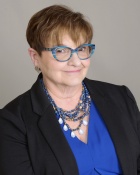
Rita Andolina
“The School of Social Work’s 90th anniversary of excellence celebrates the school and our alumni, who are compassionate, purpose-driven people, dedicated to helping improve society. I am proud to be part of the School of Social Work.”
— Rita M. Andolina, MSW ’88, Alumni Advisor
MEET THE TEAM
Six things to know about Kathryn Franco, MPH/MSW ’18
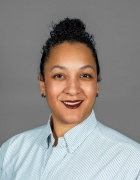
Kathryn Franco
Since graduating, Kathryn Franco has stayed involved in the School of Social Work by serving as a field educator and an adjunct professor, and now she’s back full time as our new director of alumni engagement and community relations. She spends her days representing the school in the community and engaging with our alumni, so feel free to reach out and say hi at kfranco@buffalo.edu or 716-645-1262.
- Franco’s career has ranged from working in HIV/AIDS to holding banks accountable for redlining at a nonprofit law firm to running for Buffalo Common Council with the local Working Families Party’s endorsement
- She was recognized by the John R. Oishei Foundation as part of the 2019 inaugural cohort of the Oishei Fellowship for Leaders of Color.
- Franco is a lifelong learner and has been taking American Sign Language classes for several years. She’s already used this skill in her UB position at Buffalo’s Juneteenth Celebration. She plans to start Spanish lessons in 2025.
- In 2020, during the height of the protests over the murder of George Floyd, she was one of many social workers to show up and support Daniel’s Law, which would remove police as the default first responders for mental health crisis calls made to 911.
- During her time working in the world of HIV/AIDS, Franco became a Peace Corps volunteer in Uganda. Here she hosted the inaugural World AIDS Day 5k race, bringing awareness and testing to residents of Mbarara in the southern part of the country.
- An avid traveler, Franco seeks out street art and a good thrift store at every destination. She’s finishing her goal of taking a picture with every continental state sign and currently has 35 of the 48 signs.
Franco at Dinosaur National Monument.
Franco at a Nevada state sign.
GOOD NEWS
Weaver honored for research impact
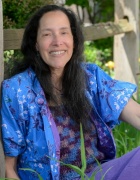
Hilary Weaver
Professor Emeritus Hilary N. Weaver has been named one of the 100 most influential contributors to social work research worldwide, according to the journal Research on Social Work Practice. The accolade recognizes Weaver's academic career, which has been marked by groundbreaking research and dedicated advocacy for marginalized communities, particularly Indigenous Peoples and refugees.
Weaver published 67 papers between 1992-2023, with more than 800 citations in other scholarly works. Before retiring in 2022, she spent 28 years at the UB School of Social Work and held roles as professor, associate dean for academic affairs, co-director of the Immigrant and Refugee Research Institute and associate dean for diversity, equity and inclusion.
Weaver now serves as board chair for the Council on Social Work Education and the inaugural global Indigenous commissioner for the International Federation of Social Workers.
ON THE PODCAST
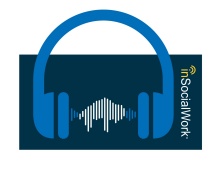
The DEIA Landscape
“We can certainly talk about having folks at the table, but once they’re at the table, are we making sure that their voices are heard? Are we making sure that we hear where they’re coming from?”
— Keith A. Alford, dean of the UB School of Social Work, during a conversation on diversity, equity, inclusion and accessibility (DEIA) and the way forward for leaders and social workers during tumultuous times.
RESEARCH SPOTLIGHT
How exposure to gun violence affects the health of Black Americans
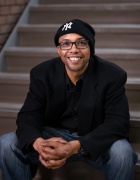
Christopher St. Vil
Exposure to firearm violence, including vicarious exposure, has a powerful and cumulative effect on the functional health of Black Americans, especially women, according to research co-authored by Associate Professor Christopher St. Vil.
“It’s a public health crisis that’s not limited to homicides,” he says.
The study’s nationally representative sample of 3,015 Black adults showed that 40% personally knew a shooting victim, while nearly 60% had been exposed to gun violence in some way. Functional health measures covered four areas: concentration, difficulty with stairs, difficulty dressing or bathing, and difficulty with daily tasks.
“Men and women were both just as likely to know a victim or hear about a shooting, but for men, it was more likely a result of community exposure. In the case of women, it was more likely a result of intimate partner violence,” says St. Vil. “Women’s functional health was also negatively affected across all four measures, suggesting total disability."
The findings, published in the Journal of Urban Health, show gun violence is a multifaceted issue that demands broader strategies to address the needs of those being disproportionally affected.
WHAT'S NEW
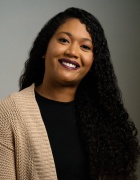
Amani Mathis
SUNY funding boosts UB mental health services
Amani Mathis, MSW ’18, joined the School of Social Work this fall as our new “embedded” counselor, as part of $1 million in new state funding for mental health support at UB.
The funding supported the hiring of seven counselors who will be embedded in various academic units, bringing the total number of counselors on campus to 31.
“The biggest thing is accessibility. It’s just more convenient if you don’t have to add travel time to get to and from your appointment,” says Sharon Mitchell, UB’s senior director of student wellness and director of Counseling Services. “Also, it reduces stigma because it normalizes seeking help.”
BACK COVER: U.S. NEWS RANKINGS
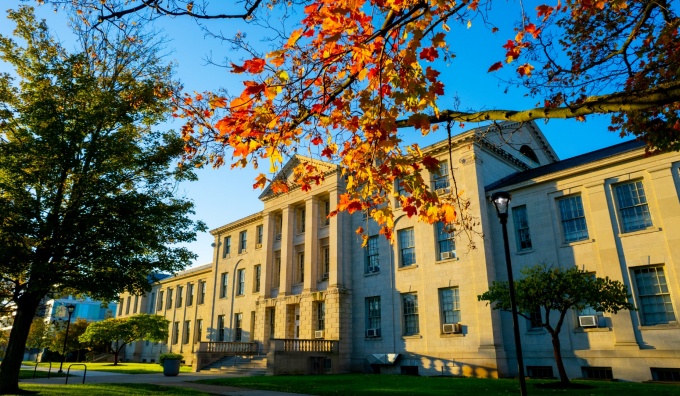
Ranked Among the Best
The UB School of Social Work is once again ranked in the top 25 nationally in U.S. News & World Report’s Best Graduate School rankings for 2024. According to U.S. News, we are No. 1 in SUNY — and No. 13 among all public universities nationwide — for social work.

